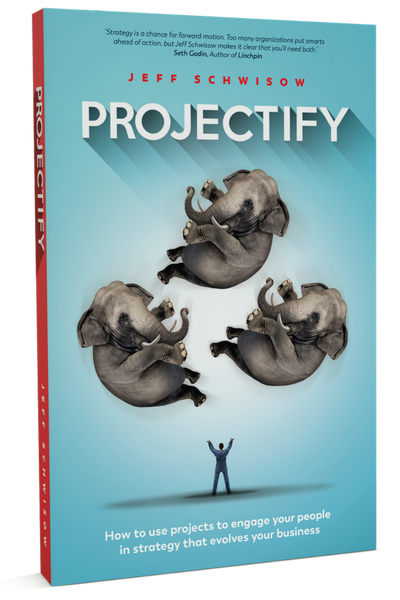Why Greatness, Not Leadership, is the Secret to a Thriving Organisation
I’m a bit over discussions on Leadership. As we often use it, I don’t like the term Leader. It conjures up images of someone who needs to be followed. We tend to think of strong leaders as the central point of control, someone directing the troops, with their hands firmly on the wheel, providing decisive decision-making. This makes leadership a position not a quality.
I prefer the term greatness facilitator. Someone that inspires and helps to create greatness in everyone around them. I think defining greatness as a quality and talking about increasing its frequency in your enterprise is the difference between mediocrity and excellence. It’s the difference between performance that serves your customers and the perception of performance that serves no one.

Leadership is a Greatness Enabler
Discussions of leadership are everywhere in popular business literature. In fact, leadership is a whole category of discussion in popular business periodicals. It’s the singular topic of some blogs and forums. These sources would suggest that leadership is both the source of our greatest business failings and the salvation for nearly any business problem.
Powerful stuff this leadership caper – yet we struggle to pin down exactly what it is. Apparently, there are somewhere between 5 and 101 essential qualities and traits that define leadership. We usually make it an organisational quality but often it is couched in individual terms.
It would seem that leadership is responsible for more types of business failure than any other single reason – the inability to manage change, execute a strategic plan, deliver shareholder value or be customer focused to name a few. Numerous studies and surveys have been done to identify specifically where leadership has let us down in the course of these failings. Presumably these findings correlate in some way to the essential qualities and traits that leadership is defined by in the first place.
The good news, we’re told, is that if we get leadership right it’s the key ingredient to successfully tackling some of our greatest business challenges. It’s also the means to sustaining an organisation or team over the long haul – through good times and bad. We often hear talk about making the shift from management to leadership as the key differentiator in rapidly changing business environments.
What all this analysis fails to recognise is that leadership is an enabler. It is a means to an end that businesses seek, not the end itself. Shortcomings in leadership, when given any specificity, are most often symptoms of the underlying problems, not the actual root cause of a failure.
No leader is good enough to ensure the success of any complex business endeavour. Only by bringing the greatness of your team to bear on that endeavour do you maximise the chance of success. Leadership is a means of enabling that greatness – the search for your organisation’s collective excellence.
Greatness Lives in the Actions of Your People
What all the examples of greatness that I can think of have in common is that their greatness came from what they did, not from the results that they achieved. Greatness – great accomplishment – is distinguished by the action and activity that surrounds it. Rarely do results alone define greatness. Many great moments have come off the back of less than desirable results. Many great people and great teams have accomplished things that few people knew or cared about. Talent doesn’t make a team great – it’s what they do with their talent that matters.
For individuals, that sort of greatness comes from mindset and motivation. They are the people that constantly strive to be the best that they can possibly be – no matter how good they currently are. That, having achieved something exceptional, they look to sustain that achievement or better it. They have the commitment and determination to continue striving for those lofty aspirations through setback and adversity.
For teams and organisations greatness comes from their culture…the way that its people think about the work that they do every day…what they value in that work…and how they engage with the people around them. It comes from a collective desire to achieve the exceptional and not settle for “good enough”. It almost always comes from doing great work – being exceptional in the way they go about their business.
A Culture of Greatness Doesn’t Follow, It Grows
An organisation’s culture doesn’t follow a leader. Culture is an expression of the collective values, beliefs and practices of the people within that organisation. It grows and develops over time based on the interaction that the business’s people have with their working environment.
This means that you can’t look to a leader to direct culture. Leading a culture of greatness requires that you cultivate fertile ground in which exceptional performance can thrive. By giving your people a shared purpose that they can believe in, the support and trust to make them feel empowered and an environment where they can excel, you begin to plant the seeds of greatness. That through consistent actions and behaviours you’ll tend those seeds so that greatness sprouts and flourishes.
It is process of facilitation not direction.
Using this definition leadership, everyone in your organisation has the capacity to be a leader. It’s not about position or title. You can lead with your skills. You can lead with your principles and values. You can lead with your determination and commitment. You can lead by supporting others and helping them to be their best.
Questions for consideration
The key questions that I hope you go away from this article asking about your organisation are:
- What greatness lives here?
- What greatness is in my team and how can I help to bring that greatness out?
- How can I help to facilitate greatness in the people around me?
I’d love to hear your thoughts and some answers to these questions in the comments.




Jeff,
Great article, I agree. The only thing I will add is when you put the team together, whether hiring or existing, you need to make sure that the people want to be exceptional and be great. There are people that are satisfied with being mediocre and collecting a paycheck, some in leadership positions too; and those who only worry about grabbing credit. But when you get it right as you so perfectly describe, its a beautiful thing!
Best regards
Tom
I understand exactly what you’re saying, Tom. Arguably one of the most important traits when building a team is each individual’s desire to do something exceptional.
One of the things that I’ve found interesting in my own work is the number of people that seem to fall into the category that you describe – mired in mediocrity and just there to collect the paycheck – that can be fully-engaged by something larger than themselves when their leader gives them something meaningful to be engaged in. It’s not always true, but when you treat people better than mediocre and show them they’re worth more than just how much they get per hour…then you just might ignite that light spark of greatness in them. 😉
Thanks for reading and taking the time to share your thoughts, mate!
Cheers,
Jeff